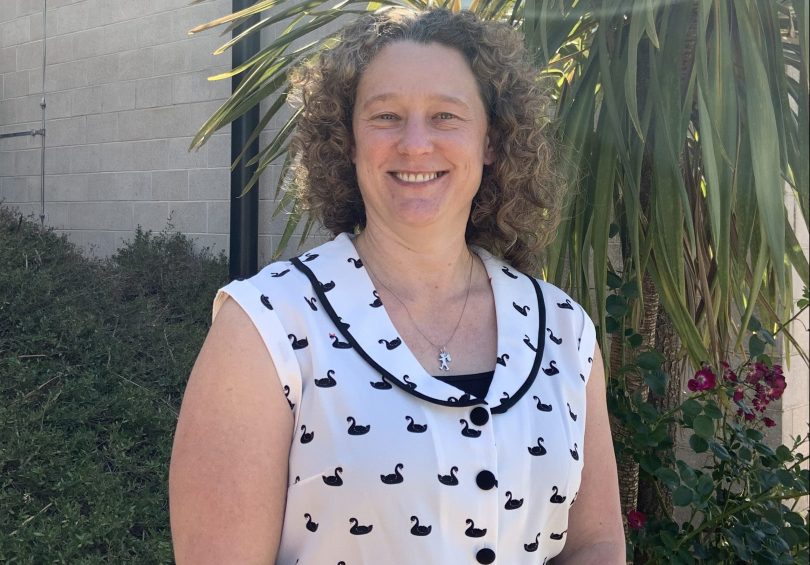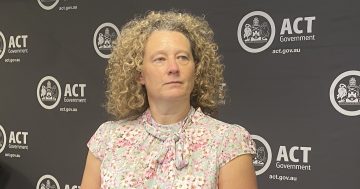
ACT Health Minister Rachel Stephen-Smith says Canberrans should avoid wide-spread panic and anxiety about coronavirus. Photo: File.
The ACT Government has sought to reassure Canberrans that the ACT is prepared for any potential coronavirus outbreak in the Capital, with quarantine and infectious disease protocols already in place across hospitals.
As coronavirus, or COVID-19, is identified in more locations around Australia, ACT Health Minister Rachel Stephen-Smith says authorities are hoping for the best, but expecting the worst.
“The Commonwealth Chief Medical Officer (CMO) and Chief Health Officer (CHO) have continued to meet daily to get an update on the global situation and to determine what Australia should be doing,” Ms Stephen-Smith said.
“The ACT is well prepared, and we continue to work with other jurisdictions to ensure that as a nation we are prepared should this become a global pandemic and have a significant impact on Australia.”
While there are no cases of the infectious disease in Canberra, the Capital has distinct advantages that can help the ACT mitigate the crisis, according to the ACT’s CHO Dr Kerryn Coleman.
“We have a really well-connected health sector, and we really have some great baseline plans and procedures in place,” Dr Coleman said.
“We know how to manage infectious diseases at our hospitals and our primary care system … so we would use the same procedures that we have used for measles or tuberculosis.
“We also know how to scale-up our hospital response when we need to, as we do in our influenza season every year.”
Coronavirus – which is more infectious than influenza but less so than measles – presents as flu-like symptoms that include a runny nose, cough, sore throat, headache and a fever that can last for a couple of days.
Because of its similarity to the flu, Ms Stephen-Smith is encouraging all Canberrans to get the flu shot this year when it becomes available in early April, especially those who are eligible for free vaccinations.
“I would really encourage older people, as soon as the flu vaccines become available, to get vaccinated,” she said.
“What we planned for is a really strong rate of coverage across the community in the absence of any other issue because we actually want people to take up that flu vaccination and reduce the impact of flu every winter.”
Although the flu shot will not vaccinate against COVID-19, it can help mitigate presentations to emergency rooms across Canberra with similar symptoms throughout this year’s influenza season.
Dr Coleman says hospitals – which already have a surge capacity in place for flu seasons – can then redirect resources to dealing with COVID-19 should the situation worsen.
“Hospitals are very well set up to isolate people who they think have an infectious disease, and we would take their specialist advice and have those procedures in place,” she said.

Dr Kerryn Coleman says the ACT already has some procedures in place that can help the Territory handle the spread of the virus. Photo: file.
According to Dr Coleman, measures could include establishing cohort-specific wards where everyone with COVID-19 is grouped together in the same ward, reducing elective surgeries and using some additional resources in Canberra Hospital as well as Calvary, which would be directed to other tasks.
Extra respiratory clinics can also be set up on an ad hoc basis.
“We would look at a respiratory assessment clinic here in the ACT, or multiple clinics if that was required, in order to ensure that people can be tested quickly and can get access to the right kind of treatment,” she said.
The Federal Government has also floated using unprecedented quarantine laws to restrict the movements of those suspected of carrying the virus, with biosecurity control orders mandating lockdowns.
Those who are suspected of carrying the virus could also be barred from attending mass gatherings, including public places like shopping centres, schools and work.
However, Minister Stephen-Smith reinforced the importance of avoiding widespread panic in Canberra when asked about people stockpiling long-life food and unperishable goods.
“We really do not want people to be panicked or anxious about COVID-19,” she said.
“It is important for people to be thinking about what might come down the track, but it is also important that people take a measured approach to this.
“We have seen some commentary that you do not need a pandemic to wash your hands, so we would encourage people to have good hand hygiene at all times.”
If you present symptoms of the disease, the advice is to isolate yourself and contact your GP or health practitioner; however, make sure you call ahead if you suspect you have COVID-19 to ensure you do not put anyone else at risk, Dr Coleman said.
More information, including a basic factsheet and updated health advice for schools and universities, is available on the ACT Health website.





















